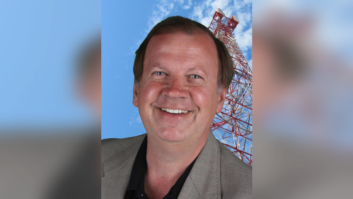In a case involving RFR levels at two FM stations in Hawaii, the FCC has decided to use short-term license renewals as an enforcement tool.
The Media Bureau has granted limited 12-month license renewals and required that the owner implement a radiofrequency radiation training program — and send a video of the workshop to the FCC.
Visionary Related Entertainment owns KNUQ in Paauilo and KAOI in Wailuku. The case resulted from complaints by a local arboretum and one of its employees, who objected to license renewals. (As with many FCC cases, this played out over several years; the objections were filed in January 2006, and the case dates at least back to 2004.)
FCC rules set maximum permissible exposure levels of human exposure to RFR, and separate MPE limits for areas of “occupational/controlled” exposure and areas for “general population/uncontrolled” exposure. Stations can demonstrate compliance by restricting public access in areas where RFR exceeds public MPE limits.
At both stations, after a lot of back-and-forth involving fencing, signage and antenna height, Visionary eventually asked for permission to move its transmitter sites. It received program test authority to do so; and the FCC now considers both KAOI and KNUQ to be in compliance.
However, the problems found earlier caused the FCC staff to decide: “Visionary’s conduct has fallen far short of the standard of compliance with the act and the rules that would warrant routine license renewal.” It said the violations had been “serious” and that they constituted a pattern of abuse over a period of years at each station.
“We believe that additional measures are necessary in order to ensure that the stations are operated in compliance with the act and the rules in the future,” so it granted short, 12-month renewal applications, adding that it has used this approach in other cases in the past.
“This limited renewal period will afford the commission an opportunity to review the stations’ compliance with the act and the rules and to take whatever corrective actions, if any, that may be warranted at that time.” It also required the company to implement a training program on RFR compliance for employees, agents and contractors. Visionary must videotape its workshop, use it to train staff and send a copy to the FCC.
The FCC emphasized in a footnote that “places great emphasis on licensees’ compliance with safety and health regulations.”






